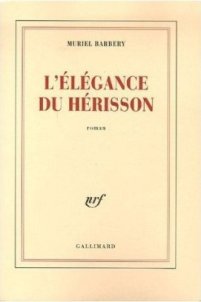 If you’re afraid of going back to the classics because you like page turners, don’t be! At least not with Rebecca. I revisited the novel for pace reasons. Let me explain. I am working on a literary mystery and I was in need of some inspiration and sustenance not so much for plot as for rhythm and tension. Rebecca, the forerunner of the psychological thriller, happened to be the perfect choice. Of course, I mixed business with pleasure for the novel is, as mentioned before, vastly entertaining. Something Du Maurier wanted. With time, it acquired a lot more than commercial value and became quite an important literary work.
If you’re afraid of going back to the classics because you like page turners, don’t be! At least not with Rebecca. I revisited the novel for pace reasons. Let me explain. I am working on a literary mystery and I was in need of some inspiration and sustenance not so much for plot as for rhythm and tension. Rebecca, the forerunner of the psychological thriller, happened to be the perfect choice. Of course, I mixed business with pleasure for the novel is, as mentioned before, vastly entertaining. Something Du Maurier wanted. With time, it acquired a lot more than commercial value and became quite an important literary work.With its remarkable descriptions of nature—either friendly or threatening—or of Manderley, a mansion that our unnamed narrator never controls or owns, this work is, besides a damn good story, all allegory, all metaphor.
I found pleasure turning those pages, but it was a sad, depressed pleasure. Don’t be fooled by the entertaining qualities of the novel, for this is a profoundly dark work. Entering Manderley felt like entering a grave. Our unnamed narrator never quite existed. (Her descriptions relate to her absence rather than her presence.) She died before being born. She never asserted herself, letting fear and the glance of others control her. And dead Rebecca was always like the sea, renewing her ardor with each wave.
This is not an easy work. For no matter how pale or submissive the narrator seems to be, the reader roots for her. Who doesn’t have compassion for a victim? And she’s attacked on all fronts. On one side, she has to please her husband, be a dreamer, “Alice in Wonderland,” as he puts it. On the other, she is given the chance to shine, be another Rebecca. None of these choices will make her happy. Being a husband pleaser will kill her identity. Being a rebel will make her true to herself but unacceptable to society. Unless she becomes some sort of monster, like Rebecca, playing the societal game on one side and not caring about anyone on the other. In the end, we know what she chooses. We know the tragedy.
And we know why this complex work is indeed a classic.

 So once upon a time (okay a couple of days ago) a person with a mild case of claustrophobia had to go through an MRI. Personnel at the hospital failed to reassure her. The MRI operator told her he couldn’t stand the thing himself without tranquilizers. So with the help of all this comforting and her own writer’s imagination, she swallowed a couple of pills before entering hell on earth, that dark, airless tunnel that would attack her from all sides. The day came, the moment. A half-spheric glass shape was placed above her head. Great. Now, she looked like a robot. A button was pushed and she glided into a tube, the tube. And then, what? It stopped and she could actually see the light at the end of the tunnel. Literally. And there was plenty of air circulating around her. She said: “That’s it? That’s what I am supposed to be afraid of? That’s why I got myself spaced out for?”
So once upon a time (okay a couple of days ago) a person with a mild case of claustrophobia had to go through an MRI. Personnel at the hospital failed to reassure her. The MRI operator told her he couldn’t stand the thing himself without tranquilizers. So with the help of all this comforting and her own writer’s imagination, she swallowed a couple of pills before entering hell on earth, that dark, airless tunnel that would attack her from all sides. The day came, the moment. A half-spheric glass shape was placed above her head. Great. Now, she looked like a robot. A button was pushed and she glided into a tube, the tube. And then, what? It stopped and she could actually see the light at the end of the tunnel. Literally. And there was plenty of air circulating around her. She said: “That’s it? That’s what I am supposed to be afraid of? That’s why I got myself spaced out for?”